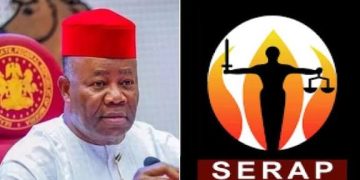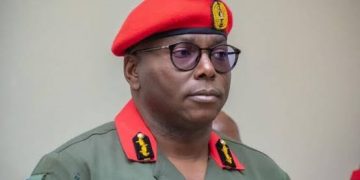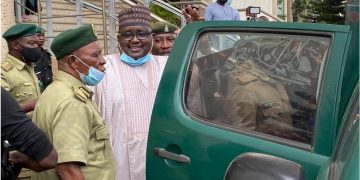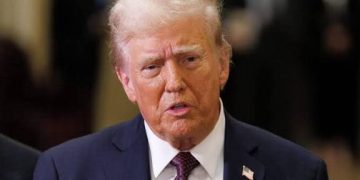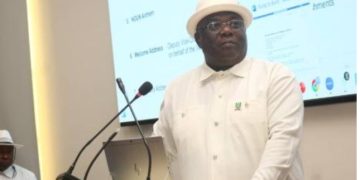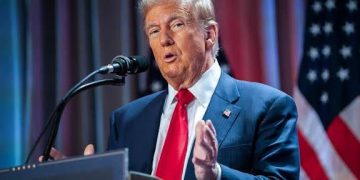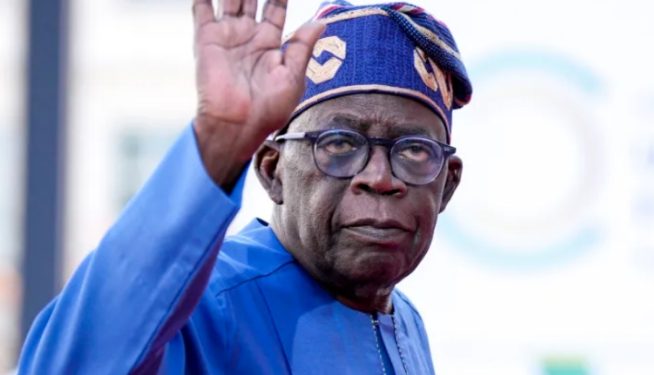Why the cry is far from being over for the Igbo person. The politics of silence. Why Nnamdi Kanu’s detention still affects Nigerian politics negatively. Unity or Division? Nigerians rally for justice as the October 20 protest looms. The people’s march for justice and the politics holding it back.
As calls grow louder for the release of IPOB leader Mazi Nnamdi Kanu, Nigerians are preparing for a nationwide peaceful protest on October 20, reigniting debates about justice, unity, and the selective power of pardon in Africa’s largest democracy.
This growing national movement is pushing for Kanu’s release ahead of the #FreeNnamdiKanuNow protest. It examines the government’s reluctance, political calculations among South-East elites, and activist Omoyele Sowore’s campaign for justice highlighting broader questions about unity, selective justice, and Nigeria’s democratic credibility.
In Nigeria, an old proverb reminds us: “A single broom is easy to break, but a bundle is unbreakable.”
This captures a timeless truth unity is strength. Yet in today’s Nigeria, division continues to weaken the people’s collective power to demand justice, equality, and accountable governance.
As the October 20 peaceful march for Kanu’s release approaches, many Nigerians are asking difficult questions about justice, ethnic equality, and the government’s moral compass.
The call for Kanu’s release is no longer just a regional demand from the South-East it has become a symbol of a larger national struggle for equity and the rule of law. Across the country, citizens are beginning to question why justice appears negotiable for some but unattainable for others.
The majority of Nigerians are insisting that Nnamdi Kanu should be released. It’s only a few less than one percent who seem to wield more power than the rest of us. But in truth, we are stronger when united.
A presidential pardon is traditionally an act of mercy a gesture of reconciliation that forgives past offenses and restores civil rights. It is meant to symbolize healing and fairness.
Yet in Nigeria, this principle seems inconsistently applied, especially when the matter concerns an Igbo person or a politically sensitive case like Nnamdi Kanu’s.
Recent presidential pardons have included individuals convicted of economic crimes, illegal mining, and even capital offenses. Yet Kanu, whose case is largely political and deeply rooted in human rights, remains in detention.
According to Presidential Spokesman Bayo Onanuga, the latest list of pardoned persons “reflects the President’s commitment to justice, rehabilitation, and correcting historical wrongs.”
But for many Nigerians, the continued detention of Kanu proves that such justice remains selective and unevenly applied.
Human rights activist Omoyele Sowore has taken up the challenge of advocating for Kanu’s release. He alleged that some political elites in the South-East are deliberately blocking Kanu’s freedom out of fear it could threaten their political interests.
Kanu’s ordeal is the result of certain individuals in the South-East who believe his release would jeopardize their political careers and future Sowore said, recalling private conversations from the 2023 elections when the ruling APC sought to expand its influence in the region.
I reached out to some of them about the protest, but many switched off their phones and refused to respond. Some Igbo elites are gambling with Nnamdi Kanu’s freedom.
A lot of young people have signed up,” Sowore noted. “We are ready to march peacefully, resolutely, and lawfully for justice.
Human rights lawyer Barrister Christopher Chidera described Kanu’s ordeal as a clear case of political persecution disguised as justice.
The government hides under the facade of legality while using the system to persecute an individual for his political stance, Chidera stated from Owerri, Imo State.
For many Nigerians, Kanu’s continued detention underlines the contradictions within Nigeria’s democracy a government that preaches the rule of law but selectively applies it.
Sowore revealed that he had engaged several key officials, including the Speaker of the House of Representatives, Dr. Tajudeen Abbas, and Deputy Speaker Benjamin Kalu.
While Abbas reportedly declined to table the issue before the House, citing ongoing court proceedings, he promised to consult privately with members, particularly Hon. Obi Aguocha, who represents Kanu’s constituency.
Deputy Speaker Kalu admitted that “the judicial process has been frustratingly slow,” a statement many interpret as an excuse for continued inaction.
Even members of the Abia State House of Assembly, who initially pledged to join the Abuja demonstration, have since gone silent.
Despite political roadblocks, organizers insist that the #FreeNnamdiKanuNow protest will go on as planned. Sowore confirmed that preparations are in “top gear” for the peaceful march to Aso Rock Villa.
We’ve heard that President Tinubu is traveling to Rome, Sowore said. “Whether or not this is an attempt to avoid the protest, we remain hopeful that he will be back to witness the will of the people.”
As the day draws near, the protest has gained momentum, winning support from youth groups, civil society organizations, and even former Vice President Atiku Abubakar, who described it as “a campaign in defense of human rights.”
The October date carries deep symbolism marking the anniversary of the #EndSARS protests, when Nigerians demanded an end to police brutality and bad governance. Today, that same spirit of peaceful resistance is being revived this time in the call for justice for Nnamdi Kanu.
Organizers stress that the movement remains peaceful and rooted in unity, not division.
We march powerfully, resolutely, and lawfully, Sowore reaffirmed.
In a nation where justice often bends under political pressure, many hope that this peaceful protest will awaken Nigeria’s collective conscience and remind those in power that a united people cannot be ignored.
Daniel Okonkwo is a Nigerian writer, human rights advocate, and journalist known for his investigative and human rights reporting. His works focus on governance, social justice, and political accountability across Africa. He contributes to Profile International Human Rights Advocate News Investigate, Sahara Reporters, Daily Intel Newspapers, review on Blueprint Newspapers, Igbere Tv News, and other international outlets.


